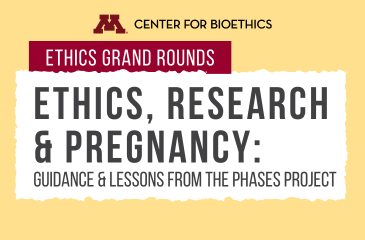
Increasingly, conducting research with pregnant women has been recognized as ethically imperative – if enduringly complex. Numerous barriers to including pregnant women in biomedical research have resulted in profound & consequential evidence gaps regarding safe & effective use of medications in pregnancy.
Dr. Lyerly presents ethics guidance developed by the project, describing:
- The process of guidance development
- An ethical framework grounding research with pregnant women
- 12 concrete recommendations aimed at securing better evidence on safely & effectively treating women living with or at risk for HIV/co-infections
- Lessons learned for ethically advancing research with pregnant women in the range of disease contexts
Speaker(s)
Annie Lyerly, MD, MA, is Professor of Social Medicine and Associate Director of the Center for Bioethics at the University of North Carolina, Chapel Hill. She is also Research Professor in Obstetrics and Gynecology. Her research addresses socially and morally complex issues in women’s health and reproductive medicine, with a focus on how women and men assign meaning to reproductive events. A central goal of her work is to inform and reframe debates based on the views of the women and men most profoundly affected by them, and to appropriately weight these individuals’ interests in shaping reproductive health care.
